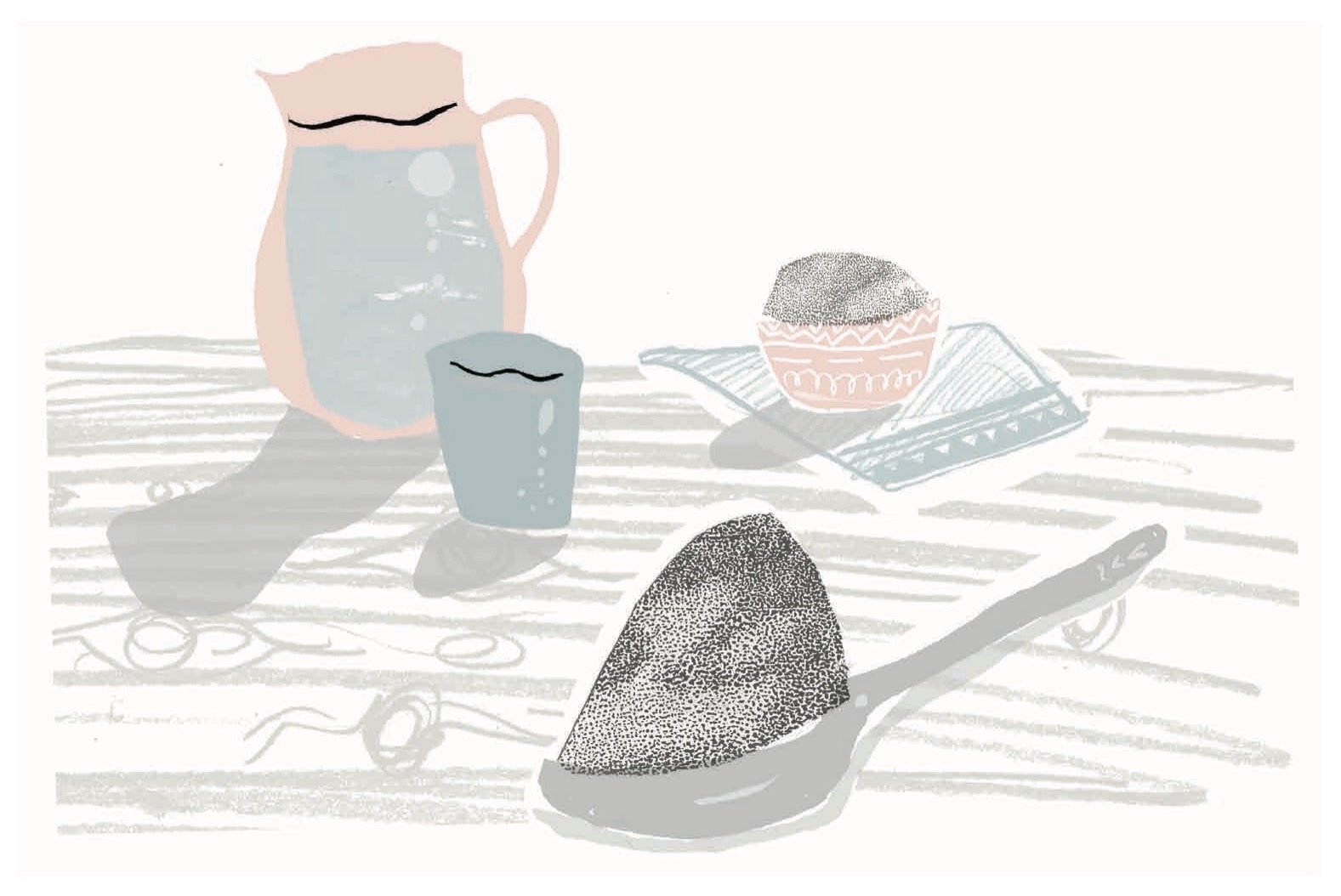Healthy Ingredients
The benefits of drinking bentonite clay
The fabulous skincare benefits of natural clays have been well known amongst the beauty savvy for millennia. In the modern day, clay is still used in a variety of face masks and skin creams – the healing qualities of the earth’s natural mineral riches making a wonderfully soothing skin treat. Less appealing is the thought of incorporating clays into our diets. That’s right, you can eat certain types of clay!
The consumption of natural clay and minerals may sound unusual, but humans have been reaping the benefits of consuming natural clays for centuries. In fact, it’s still used as a mineral-rich dietary supplement in many parts of the world today.
Bentonite clay (also known as Montmorillonite) has grown in popularity, thanks to the publication of several natural health studies exploring its bodily benefits, both inside and out. Found most commonly in the foothills of Fort Benton, Wyoming, this aged volcanic ash is packed with health boosting minerals, including calcium, magnesium, iron, and potassium – all nutrients vital to keeping our health and wellbeing at its absolute best.

How should I use bentonite clay?
When ingested, the vital vitamins and minerals found in bentonite clay are absorbed into the body. Much like a dietary supplement you might find at your chemist, Bentonite clay can be introduced into your diet as a natural supplement, adding a beneficial mineral boost.
The most common, and probably most convenient, way to introduce Bentonite clay to your diet is by simply adding it to water. Add half a teaspoon of Bentonite clay to a glass of water, ensuring that you stir well, and drink straight away before it ‘sets’.
Alternatively, add half a teaspoon to a teaspoon to a bottle of water for a nutrient boost when you’re on the go. Just make sure to give your bottle a good shake before drinking!
Bentonite clay can also be used as part of a thorough yet gentle intestinal cleanse – see Liz Earle’s Good Gut Guide for more on this and ways to give your gut health a boost. You can find brands, such as Zeolite-Bentonite, who sell food grade clay in powder and capsule form easily online.
What are the benefits of drinking bentonite clay?
As well as being a source of minerals, Bentonite clay has also been shown to kill bacteria, including MRSA, E.Coli, and Salmonella.
Its germ-busting, antibacterial properties mean that a Bentonite clay paste could be used as a natural toothpaste, or gargled as an antibacterial mouthwash. Whilst its earthy taste may be a change from the minty flavours we’re used to, Bentonite clay’s binding properties means that it can easily remove unwanted substances around our teeth and gums. Protecting our teeth and gums isn’t only the key to a bright smile – it has also been linked to a reduced risk of stroke, diabetes and heart disease.
The benefits that Bentonite clay can have on our health and wellbeing don’t stop at the mouth. When ingested, Bentonite can also help to protect the balance of healthy bacteria in our digestive tract, and strengthen our immune system.
Interestingly, Bentonite clay is excellent at combating dietary toxins such as Aflatoxins (a dangerous mould-like compound which can be found in products such as mouldy nuts, peanut butter and contaminated cooking oil) that can suppress the function of the immune system. Other healing clays, such as Palygorskite and Kaolinite, have also been shown to absorb toxins, bacteria, and viruses in the gastrointestinal tract.
By combating these toxins, Bentonite clay can help to promote and protect the good bacteria and flora living in our gut. Ensuring our gut health is in excellent shape is something we now know is vital to maintaining our over-all health and wellbeing. Bentonite clay could also make a welcome addition to any carry-on travel bag or travel first aid kit. It is a highly effective antidiarrhoeic – so, packing it along with your rehydration salts may come in handy when off to far-flung lands!
For more information get your copy of Liz’s latest best-selling book Good Gut Guide.
As with any changes to your diet, it is best to consult your doctor or health practitioner before making Bentonite clay a part of your regular routine. Make sure to buy your Bentonite clay from a trusted source – unscrupulous sellers have been found to sell Bentonite clay products containing lead, a substance hazardous to human health. As such, Bentonite clay may not be suitable for use by pregnant women, or children.




